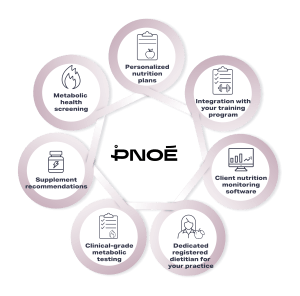Do you struggle to gain strength, power and speed?
Investigate what is actually happening under the hood when you have been trying all the “right” things but still are not getting the desired results!
There are several hormones that can contribute to low muscle power and strength, including:
- Testosterone: Testosterone is an important hormone for building and maintaining muscle mass and strength. Low levels of testosterone can lead to muscle weakness and decreased muscle mass.
- Growth hormone: Growth hormone is another hormone that is important for muscle growth and repair. Low levels of growth hormone can contribute to muscle weakness and decreased muscle mass.
- Cortisol: Cortisol is a stress hormone that can cause muscle breakdown and lead to decreased muscle mass and strength.
- Insulin: Insulin is a hormone that helps to regulate blood sugar levels, but it also plays a role in muscle growth and repair. Insulin resistance, which can occur in conditions such as type 2 diabetes, can lead to decreased muscle strength and mass.
- Thyroid hormones: Thyroid hormones play a role in metabolism and energy production, and low levels of these hormones can contribute to muscle weakness and decreased muscle mass.
It’s important to note that hormone imbalances are just one potential cause of low muscle power and strength, and it’s important to work with a healthcare provider to identify the underlying cause and develop an appropriate treatment plan.

Here are some references that provide more information on hormones and their role in muscle strength and power:
- Testosterone and Muscle Mass: http://www.jbc.org/content/282/16/11785.full
- Growth Hormone and Muscle Growth: https://www.ncbi.nlm.nih.gov/pubmed/10620033
- Cortisol and Muscle Breakdown: https://www.ncbi.nlm.nih.gov/pubmed/22776949
- Insulin and Muscle Growth: https://www.ncbi.nlm.nih.gov/pubmed/11099877
- Thyroid Hormones and Muscle Strength: https://www.ncbi.nlm.nih.gov/pubmed/14720170
These references provide information on the scientific research that has been conducted on the role of hormones in muscle strength and power. They are all peer-reviewed articles from reputable scientific journals.
Gut inflammation can impact muscle strength, growth, and power in several ways.
- Nutrient absorption: Chronic inflammation in the gut can interfere with the absorption of nutrients, including protein, which is essential for muscle growth and repair. This can lead to inadequate nutrient intake, which can negatively affect muscle strength and power.
- Muscle protein breakdown: Inflammatory cytokines produced in the gut can promote muscle protein breakdown, leading to a loss of muscle mass and strength.
- Hormone imbalance: Inflammation in the gut can also lead to imbalances in hormones that are important for muscle growth and repair, such as testosterone and growth hormone.
- Reduced energy levels: Chronic gut inflammation can cause fatigue and reduced energy levels, which can make it more difficult to engage in physical activity and exercise, leading to a loss of muscle strength and power over time.
- Autoimmune disorders: Chronic gut inflammation can be a symptom of autoimmune disorders such as celiac disease or inflammatory bowel disease. These conditions can lead to malabsorption of nutrients, muscle wasting, and reduced muscle strength and power.
It’s important to note that the relationship between gut inflammation and muscle strength, growth, and power is complex and multifaceted, and more research is needed to fully understand the mechanisms involved. However, it is clear that addressing gut inflammation through diet, lifestyle changes, and medical treatment when necessary, can help to maintain muscle health and function.

Here are some references that provide more information on the relationship between gut inflammation and muscle strength, growth, and power:
- Al-Shreef FM, et al. Gut microbiota, inflammation, and muscle mitochondrial function: their role in the development of sarcopenia. BioFactors. 2020 Sep;46(5):762-773. doi: 10.1002/biof.1668.
- Li Y, Li D, Zhao Y, et al. Gut Microbiome and Muscle Loss: New Insights into Molecular Mechanisms. Microorganisms. 2020;8(9):1313. Published 2020 Aug 31. doi:10.3390/microorganisms8091313
- Arentson-Lantz EJ,
